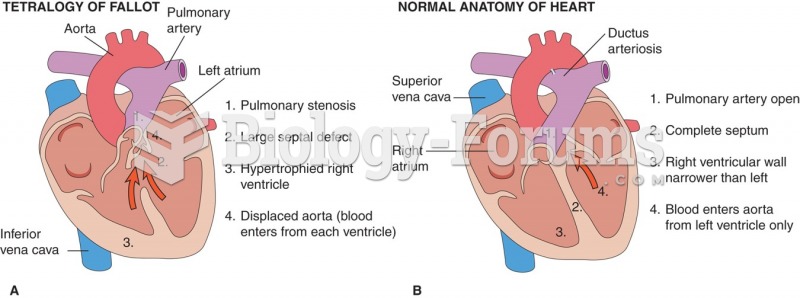|
|
|
Dogs have been used in studies to detect various cancers in human subjects. They have been trained to sniff breath samples from humans that were collected by having them breathe into special tubes. These people included 55 lung cancer patients, 31 breast cancer patients, and 83 cancer-free patients. The dogs detected 54 of the 55 lung cancer patients as having cancer, detected 28 of the 31 breast cancer patients, and gave only three false-positive results (detecting cancer in people who didn't have it).
No drugs are available to relieve parathyroid disease. Parathyroid disease is caused by a parathyroid tumor, and it needs to be removed by surgery.
Adult head lice are gray, about ? inch long, and often have a tiny dot on their backs. A female can lay between 50 and 150 eggs within the several weeks that she is alive. They feed on human blood.
The ratio of hydrogen atoms to oxygen in water (H2O) is 2:1.
Critical care patients are twice as likely to receive the wrong medication. Of these errors, 20% are life-threatening, and 42% require additional life-sustaining treatments.
 An oscillating needle 1 or 2 inches Hg below normal could indicate an incorrect air–fuel mixture ...
An oscillating needle 1 or 2 inches Hg below normal could indicate an incorrect air–fuel mixture ...
 If the needle drops 1 or 2 inches Hg from the normal reading, one of the engine valves is burned or ...
If the needle drops 1 or 2 inches Hg from the normal reading, one of the engine valves is burned or ...





